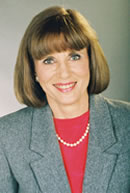(Editor's note: Prior to her interview for this story, Sir George Martin recommended that Linnda Durre read his two books, All You Need Is Ears and Summer of Love: The Making of Sgt. Pepper. Her three-part series that begins this week is a combination of her interview with him and the book quotes.)
Treating people equally, focusing on the work, honest communication and doing what you love -- four basic values that legendary record producer Sir George Martin, "the CEO of The Beatles," used with the most successful, creative, zeitgeist-changing, consciousness-raising band in the history of music.
CEOs and other business executives, take note from Martin on how to make your company powerful, productive, create a brand, contribute positively to society and make the world a better place, all at the same time.
"I just focused on the music and made the music the focus for others -- I still do. That's my job. If the music doesn't work, then the rest falls apart anyway," he says. Martin was privy to a potent mix of innate talent, preparation and opportunity.
Lesson No. 1: Be well-trained and establish an outstanding reputation as a dependable professional. Ambition combined with ethics and integrity is a powerful force. Let setbacks and desperation whet your appetite for new opportunities. Be optimistic and have faith that something great is just around the corner.
Childhood piano lessons and education at the Guildhood School of Music under the renowned Professor Sidney Harrison contributed to Martin's growing reputation as a reliable, brilliant young man on the rise.
In 1955, the legendary Oscar Preuss eventually retired, leaving Martin in charge of Parlophone at age 29, the youngest head of a label in England in the pre-rock era. Despite early success producing albums with The Goonies (Peter Sellers) and Beyond the Fringe, Martin turned down Tommy Steele, England's first big rock star.
He was desperate for a hit band to put Parlophone on the map and make his reputation. It was April 1962. Enter Brian Epstein, an ambitious manager who was pushing his new band from Liverpool. Epstein was feeling equally as desperate as Martin after rejections from Decca, Pye, Phillips and EMI.
Martin was the one record executive Epstein hadn't seen. The result was fortuitous, recordbreaking (a deliberate pun) and world changing.
Lesson No. 2: Trust your senses, your intuition and your gut. Give something a chance. Think outside of the box. Pay attention, and notice crowd responses and the public's reaction. Be a visionary.
Martin says the thought of anything coming out of the provinces "was extraordinary at that time." But he agreed to hear the record. Epstein played it. "The recording, to put it kindly, was by no means a knockout," Martin writes. "But I sensed an unusual quality of sound, a certain roughness that I hadn't encountered before. Also, that more than one person was singer, which at the time was different. I wasn't knocked out, didn't do handstands or say that's the greatest group ever. There was something tangible that made me want to hear more, meet them and see what they could do ... I simply thought it was worth a shot."
So on June 6 at Abbey Roads Studios after returning from Hamburg, enter "the lads" -- Paul McCartney, John Lennon, George Harrison and first drummer Pete Best, who showed up with their soon-to-be eponymous haircuts, which were "fairly shocking at the time," remembers Martin. But, he says, "It was love at first sight ... we hit it off straight away. The most impressive thing was their engaging personalities. They were just great people to be with."
Martin was not all that impressed with the music, but their energy, wit, charm and humor won him over. "I thought that if they have had this effect on me after a short audition, they would have a similar effect on an audience," he intuited perceptively. It was a billion-dollar prediction.
Just to experience the band live in concert, Martin and his wife, Judy, drove up to Liverpool to the now-mythic Cavern Club. It was "electric," he says. The place was packed with screaming teenagers who loved The Beatles. The trip confirmed his prophecy.
Now what would he do with The Beatles? Stay tuned for Part 2 next week.
. . . Continue to Part 2.
. . . Continue to Part 3.











